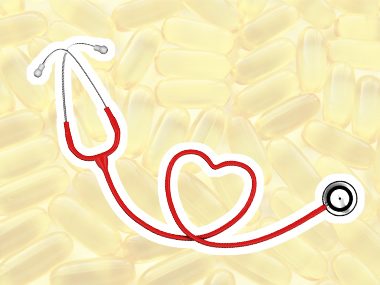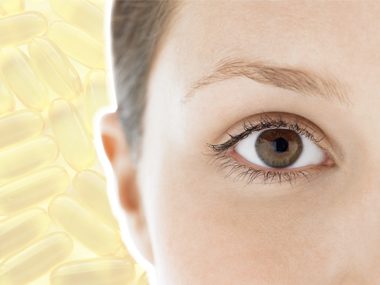
Is vitamin E good for my heart?
Possibly, if you’re female. One Harvard study of nearly 40,000 healthy women found that after 10 years, cardiovascular mortality decreased by 24 percent in those who took a vitamin E supplement compared to a placebo, and that number jumped to 49 percent among women older than 65. The study also found that there was a 26 percent decrease in nonfatal heart attacks in women 65 and older who took vitamin E. Another observational study published in the New England Journal of Medicine analyzed the diet of nearly 90,000 women and found that incidence of heart disease was 30 to 40 percent lower in those with the highest intake of vitamin E. However, several clinical studies that looked at the effects of vitamin E on heart health found no link between the two, in both men and women.

Can vitamin E prevent cancer?
Vitamin E is an antioxidant and protects cells from free radicals, and studies have been done to examine whether it’s effective at preventing certain cancers. • The most promising link between vitamin E and cancer prevention is with bladder cancer. The American Cancer Society conducted an epidemiological study of almost one million adults and found that those who took a vitamin E supplement for 10 years or longer had a reduced risk of bladder cancer. • Vitamin E may help prevent prostate cancer, but only in smokers. One study of nearly 30,000 men by the National Cancer Institute found that current or past smokers who took a vitamin E supplement were 71 percent less likely to develop prostate cancer than those who took a placebo. However, when researchers looked at the group as a whole—smokers and nonsmokers—there was no general association between vitamin E supplementation and a decrease in prostate cancer. Another study of male smokers from Finland found that those who took a vitamin E supplement for six years had a 32 percent decrease in incidence of prostate cancer and a 41 percent lower mortality rate from it than those who took a placebo. • Results are inconclusive when it comes to colon and breast cancer.

Can Vitamin E help my eyes?
Yes. A study by the National Eye Institute found that taking 400 IU of vitamin E a day slowed the progression of advanced age-related macular degeneration by about 25 percent in patients at risk for the condition. A small study by researchers at Tufts University found that taking vitamin E reduced the risk of cataracts in women age 52 to 74.

Can Vitamin E help my brain?
If you’re older, vitamin E might help keep your brain sharp. A study published in JAMA Neurology found that among people aged 65 to 102, those with the highest vitamin E intake had a 36 percent reduction in cognitive decline after three years when compared to those with the lowest consumption. A clinical trial of Alzheimer’s patients at Columbia University found that those who received 2,000 IU of vitamin E a day for two years significantly slowed the progression of the disease and the need for institutionalization, when compared to a placebo.